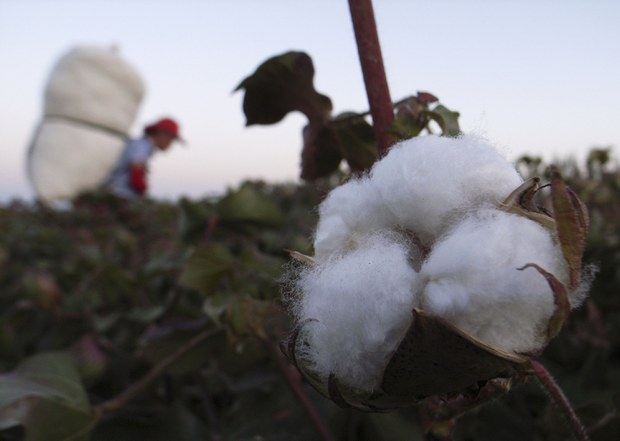A bill re-introduced to Congress by two lawmakers on Tuesday would expand U.S. sanctions to include foreign companies that do business with entities identified as contributing to human rights violations against ethnic Uyghurs in China’s Far West.
The proposed law, the Sanctioning Supporters of Slave Labor Act, would authorize U.S. government agencies to impose secondary sanctions on companies or individuals that have transactions with sanctioned entities, such as the Xinjiang Production and Construction Corps, or XPCC, the biggest state-owned enterprise in China’s Xinjiang Uyghur Autonomous Region.
If it passes, any non-U.S. company that enters transactions with such entities would be banned from working with American companies and their assets in U.S. bank accounts would be frozen, according to the office of Sen. Marco Rubio, a Florida Republican, one of the two sponsors of the bill.
Companies would be forced to choose between keeping sanctioned suppliers in Xinjiang or continuing to sell their products in the United States, his office said.
“Further actions must be taken to hold accountable those individuals and entities benefiting from the forced labor of Uyghurs,” Rubio said in a statement. “Not only should China’s genocidal regime answer for the crimes they are committing but also the companies that profit from these atrocities.”
The bill expands on a previous law, the Uyghur Human Rights Policy Act, passed in 2020, that imposes sanctions against entities determined to be supporting the Chinese Communist Party’s violations of Uyghur and other ethnic minority rights.
U.S. Rep. Jim Banks, a Republican from Indiana, introduced companion legislation in the House of Representatives.
The bill had initially been introduced in 2022, during the last congressional session, but wasn’t passed, so the lawmakers have re-introduced it.
International condemnation
China has come under harsh international criticism in recent years for its severe rights abuses of the predominantly Muslim Uyghurs, including forced labor.
The U.S. government and several Western parliaments, including the German Bundestag, have declared that the abuses in the Xinjiang Uyghur Autonomous Region in the far western part of China amount to genocide or crimes against humanity.
The United States has passed two pieces of legislation to address these grave abuses.
Congress passed a law that took effect In December 2021 called the Uyghur Forced Labor Prevention Act, or the UFLPA, that directed the U.S. Customs and Border Protection to support enforcement of the prohibition on the import of goods into the U.S. manufactured wholly or in part with forced labor in China, especially from Xinjiang.
And in late May, a bipartisan piece of legislation, the Uyghur Genocide Accountability and Sanctions Act was introduced, which further reinforces the two existing laws by mandating new sanctions on Chinese entities and requiring companies to disclose any ties they have to supply chains that touch Xinjiang.
Rubio was one of the sponsors to introduce these bills, and has been sanctioned by Chinese authorities.
Some lawmakers have accused American companies of aiding and abetting the Chinese Communist Party in their human rights violations.
A 2020 New York Times report revealed that major corporations such as Nike and Coca-Cola had invested heavily in lobbying Congress to weaken the UFLPA.
“Prior experience with the effort to get UFLPA passed shows that corporate America is willing to turn a blind eye to human rights abuses and even genocide, if it means maximizing their profit margins,” said a spokesperson for Rubio, requesting anonymity.
“This will only increase pressure on the CCP (Chinese Communist Party) to stop its senseless attacks on Uyghurs, Kazakhs, Kyrgyz and the other peoples living in Xinjiang,” the spokesperson said.
Edited by Malcolm Foster.
.rfa.org

